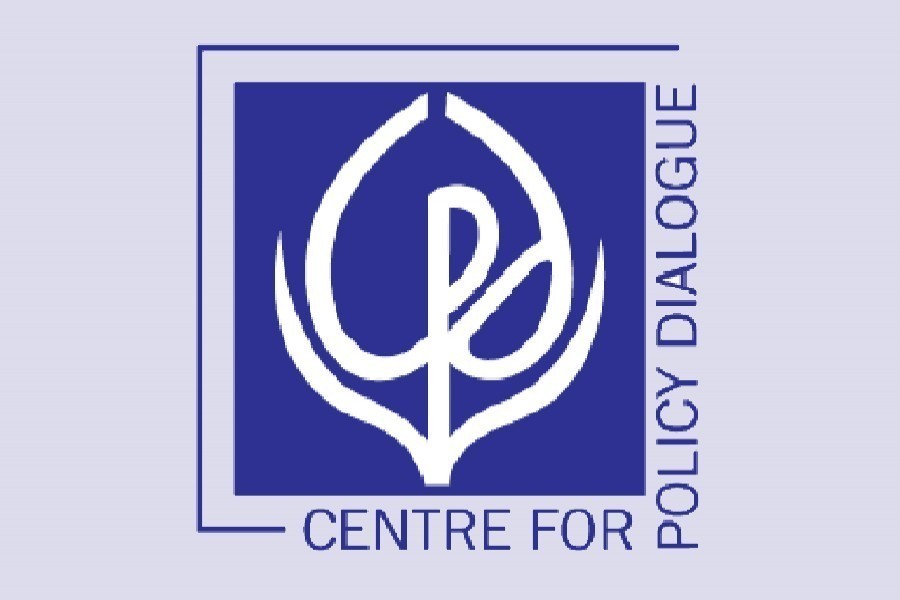The Centre for Policy Dialogue (CPD) has recommended to increase the tax-free income threshold level from Tk 250,000 to Tk 350,000 and not keeping the provision of black money whitening facility in the national budget for 2020-‘21 fiscal year.
The independent think tank also recommended keeping focus on four sectors -- health, agriculture, social safety net and employment – in the upcoming budget, reports UNB.
“We’re for giving importance to four sectors -- health, agricultural, social safety net and employment – not going to focus on many sectors in the upcoming budget. This time the budget will have to be designed keeping the four issues in mind,” said CPD.
CPD’s executive director Dr Fahmida Khatun gave the observations on behalf of the think tank at a virtual media briefing over ‘COVID-19-Present Context and Budget for 2020-21 FY’ in Dhaka on Saturday.
In designing the budget, she said it needs to cut down unproductive expenditures and focus on necessary and productive ones for making the economy vibrant.
About revenue mobilisation, Dr Fahmida Khatun said it needs to expand the tax-net, and strictly curb all types of tax evasions and illicit financial flows (IFFs) with an iron hand to raise the tax-GDP ratio for meeting expenditures at this critical time.
She said there is a scope for downsising the administrative and other non-productive expenditures to 50 per cent.
Talking about the health sector, the CPD executive director said alongside improvement in healthcare management, the share of health budget as percentage of GDP should be increased to 2 per cent in the future and at least 1.12 per cent (from the existing 0.9 per cent) in the next budget to meet the target set in the 7th five-year plan.
CPD distinguished fellow Prof Mustafizur Rahman said the tax-GDP ratio is the lowest (some 10 pc) in Bangladesh among the South Asian countries. The tax-GDP ratio is 18 per cent in Nepal and India.
“If we’ve been able to raise tax-GDP ratio at 18 per cent, now we’ve enough strength to face such risks. So, this time our prime targets should be to curb tax evasion and the capital outflow,” he said.
Prof Mustafizur Rahman said the government should not encourage agricultural mechanisation now as 42 per cent workforce is employed in the agriculture sector though its share in the GDP is 13 per cent.
About the migrant workers, he said Bangladesh should also be ready to arrange jobs for huge migrants who have returned from various countries as a large chunk of migrant workers, even legal workers, may return home as many companies would become bankrupt due to the fallout of COVID-19 pandemic.
CPD Research Director Dr Khondaker Golam Moazzem said the government can save money by re-prioritising the development projects and channelling the BPC’s (Bangladesh Petroleum Corporation) windfall gains towards resources mobilisation against the backdrop of lower oil prices in the international market.
Besides, a large amount of cash incentive will not be required for export and remittance inflow in the next fiscal year, he said adding that the money from the non-utilisation of cash incentive can be diverted for support of the returnee migrants.
Presenting the keynote paper on CPD’s recommendations for the national budget FY 2020-21, its senior research fellow Towfiqul Islam Khan said, “The National Board of Revenue (NBR) should consider raising the tax-free income threshold levels from Tk.250,000 to Tk.350,000 in the FY2021 budget.”
He said the NBR may also consider restructuring the first three slabs of income tax from 10, 15, and 20 per cent to 5, 10, and 15 per cent respectively, at least for next two years. The NBR may consider allowing payment of individual income taxes for FY2020, by installments, by March 2021, he added.
Towfiqul said the existing black money whitening facility through voluntary disclosure of undisclosed income discourages honest taxpayers while tax evaders are encouraged. “This provision should not be continued from the next fiscal year,” he added.
To reduce public expenditure pressure, he said the government needs to identify non-development expenditure which may be deferred. “Some of these are expenditures on foreign travel, acquisition of assets, investment in shares and equities, recapitalisation of state-owned enterprises. These should be deprioritised,” he said.
He said the expected savings from lower oil prices at the global level need to be channelled to selected sectors particularly health, agriculture and social safety net programmes (SSNPs).
Suggesting that the budget for FY2021 should give a special focus on SSNPs and related activities in view of COVID-19, Towfiqul in his paper said the government should allocate at least 3 per cent of the GDP for social safety net programmes outlined in the National Social Security Strategy.


